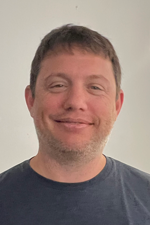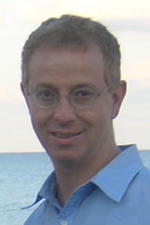Breakfast & Learn Workshop Series - 2024 Gulf Coast Conference
Abstract # 233
Advances in ICP: Novel Approach to Oil Analysis with Aqueous Calibration and Innovative Nebulization for Enhanced Performance
Breakfast will be served for registered attendees.
October 16, 2024 10:00 AM - 11:00 AM
Presented in the Floral Room A2 (note this is a change from the Ivy 1 Room), Moody Gardens Hotel
 |
Session 1: Enhancing the Efficiency of ICP-OES Analysis of Challenging Samples
Dr. Max Bonner, CEO of Bonner Analytical Testing
Analytical laboratories are challenged to ultimately balance the requirements of accuracy and sensitivity with respect to a robust and efficient ICP system. Besides spectral and chemical interferences the complex physical nature of sample matrices (e.g., suspended and dissolved solids, salts, and sucrose) remain challenging. Method development of a multi-element ICP-OES analysis with maximized linearity for environmental and industrial samples will be discussed. Modification at the instrument’s nebulizer to tackle a complex matrices of high suspended solids and high sucrose while maintaining the method’s initial purposes will be presented . Such modification reduces sample preparation measures and instrumentation downtime while providing a robust and efficient ICP system at a fraction of the cost. |
| |
Max began his laboratory career at the age of 10. After receiving a BS in Chemistry, Max earned his doctorate with an emphasis in nanoscience utilizing Time and Spectrally Resolved Photoluminescence Spectroscopy and Time Correlated Single Photon Counting Spectroscopy. He has worked at Bonner Analytical Testing Company as a Trace Metal Chemist, and later acted as Inorganic Supervisor and Quality Assurance Manager. As the Laboratory Manager, he began overseeing the day-to-day operations while maintaining BATCO’s NELAC, CDC ELITE, Drinking Water, and USEPA certifications. While serving as the CEO in 2021, BATCO was awarded a multi-year contract through USEPA contract laboratory program for analytical services in both inorganic and organic analyses. Under his guidance the laboratory has increased sample capacity by 61%, maintained top laboratory status within the country for both programs, and created a fully-electronic data package and data validation system.
|
 |
Session 2: From Brine to Battery - Taking oil field brines and creating Lithium Metal batteries on site!
Dion Tsourides, VP of Analytical Services - Pure Lithium
The ability to convert oil field brines into the next generation Li Metal batteries will be discussed. An overview of the analytical tools used to achieve this low-cost, high-performance battery (with substantially lower environmental impact) will be presented. Specific highlights will be the use of advanced analytical spectroscopy (deep VUV ICP-OES), along with a “matrix flexible” sample introduction system capable of handling unprocessed oil field brines (30% TDS), high purity Li metal, and battery specific alloys with good overall analytical performance and minimum maintenance required. |
| |
Dion Tsourides has 25+ years of experience in Analytical Chemistry and instrumentation. He is a global expert in ICP Atomic Emission Spectroscopy, having commercialized the first ICP-OES system capable of analyzing the halogens using solid state detectors. He is intrinsically familiar with the analytical requirements for mining, metallurgy, battery characterization, petrochemicals, and aerospace. He has served on expert review panels for various agencies (AOAC, ASTM, USDA/FDA) and is currently part of the ISO TC 333-Lithium steering committee. Dion has authored numerous publications using ICP-OES. Currently he is assisting in the development and commercialization of the first high amperage Li Metal battery for Pure Lithium.
|
 |
Session 3:Feasibility of ICP-OES Analysis of Metals and Sulfur in Oils Using Aqueous Based Standards
Madeline Gozzi, R&D Chemist - Inorganic Ventures
The analysis of metals in oils by ICP-OES has depended on the quality of organometallic certified reference materials (CRMs). An innovative approach to instrument calibration using aqueous CRMs diluted in a new organic solvent has been investigated. This organic solvent allows for the miscibility of inorganic metals in dilute acid and is also employed to dilute the oil samples. The results of traditional organometallic CRMs are compared against aqueous based CRMs. The observed benefits of utilizing this innovative approach will be discussed, including the ability to ICP-OES analysis of Sulfur along with metals in Oils by the same method.
|
| |
Madeline started working for Dr. Paul Gaines, the founder of Inorganic Ventures, in Lakewood, New Jersey back in 1994. She worked with Dr. Gaines to produce the first SI traceable certified reference materials for osmium and iridium, with papers published in Analytical Chemistry. It’s a great joy for Madeline to work on these research projects because there is a lot of room for creativity and forward thinking, which is encouraged by the leadership at Inorganic Ventures. |
|
|
| |
|